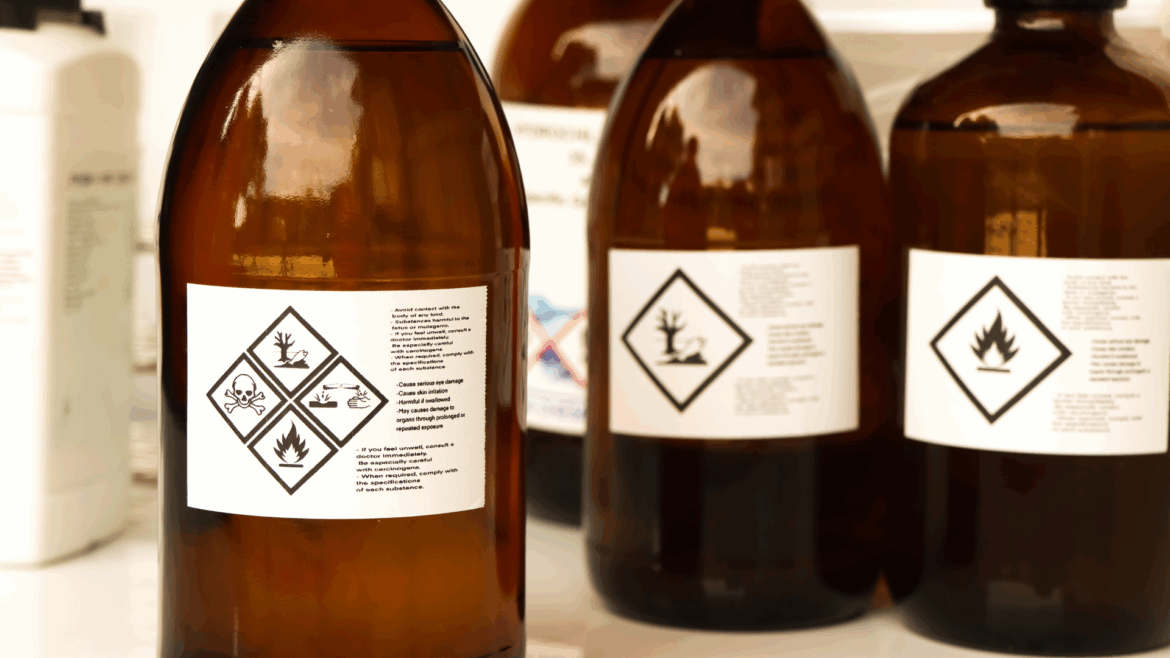The European Commission has presented another package simplifying regulations covering the chemical sector. The simplifications concern chemical regulations in the cosmetics and fertilizers sector, as well as the method of labelling, advertising or selling chemicals.
On 08.07.2025, the European Commission published the sixth Omnibus called the European Action Plan for the Chemical Industry. The aim of the Omnibus is to reduce bureaucracy, reduce costs for industry, invest in sustainable development, and stimulate growth in global competitiveness.
The main objectives of the simplification idea include:
- creation of a “Critical Chemical Alliance” to monitor the supply chain of critical raw materials
- expanding the monitoring of imports of chemicals
- reducing energy costs through investments in hydrogen and recycling
- implementing a circular economy and increasing the recycling of raw materials
- authorisation of the use of PFAS substances in strategic sectors
Specific issues for the chemical sector included in the sixth Omnibus:
-
Changes in the CLP Regulation:
- digitization of information through the introduction of “digital contact”
- simplifications for labelling – withdrawal of minimum font size and formatting rules, leaving the obligation to update the label “without undue delay”, simplifications for small packages
- product advertisement must include the phrase: ‘Always read the label and product information before use’, instead of full information about the risks of CLP
- introduction of a transitional period e. for the labelling of dangerous products produced before the entry into force of the new legal act, in the online sale description
-
Changes in the Cosmetic Products Regulation
- authorisation of the use of CMR substances in cosmetic products after application for a derogation, when certain conditions are met
-
Changes in the Fertilising Products Regulation
- digitization of information through the introduction of digital contact
- the introduction of a digital declaration of conformity and a cross-reference attached to the product that provides easy access to the digital declaration of conformity and the information contained therein; in an appropriate format in accordance with Directive (EU) 2019/1024
- storing all information confirming the conformity of the product in digital form, in a language easily understood by the inspectorate
The proposed Omnibus package raises some doubts about maintaining the safety and health of consumers at an appropriate level, as well as care for the environment. However, it is a great relief for entrepreneurs and also contributes to weakening the decline in the competitiveness of EU chemical products.
Concerns related to the proposed simplification
The proposed Omnibus package raises some doubts about maintaining the safety and health of consumers at an appropriate level, as well as care for the environment. Environmental activists warn that simplifying the rules could undermine years of progress in the field of health and environmental protection. In addition, they said that the European Commission is succumbing to pressure from industry and taking the side of entrepreneurs, not consumers.
Proponents of simplification argue that the proposed plan is not only a policy on chemicals, but a real support for the industry, which has been alarming for so long. They highlight the problems with maintaining competitiveness on the global market due to too high regulatory burdens. Proponents cite the example of the decline in the importance of the chemicals sector in Europe by almost half in the last 20 years, as well as the closure of many chemical plants and the relocation of production outside the European Union.
Opinions are divided, and the proposed documents are only a draft presented by the European Commission. To be officially implemented they must go through the entire legislative procedure with approval by the EU Council and the European Parliament.
The Commission’s replies to the questions:
Why introduce a simplification package into recently updated rules (e.g. CLP)?
- Because chemicals are crucial to the EU economy and the chemical industry is facing high energy costs, unfair competition and weak demand. Large companies are closing down and moving their productions outside the European Union. The simplification package aims to help the chemical sector recover and increase the production of chemicals, as well as cut red tape to reduce costs.
In addition to regulatory simplification, will the Commission implement other measures for the chemical sector?
- Import activities will be strengthened through the creation of an Import Surveillance Task Force. Enforcement of chemicals legislation will be a priority. Activities will focus in particular on online sales through online platforms and the sale of products through unregulated intermediaries. The purpose of the inspection is to reduce legal loopholes and eliminate imported products that do not comply with the regulations.
- In addition, in order to secure access to critical raw materials, a “Critical Chemicals Alliance” will be established to identify critical chemicals, establish a common purchasing base for critical chemicals, and diversify the sources of critical raw material suppliers.
- The Commission intends to focus on the recycling of chemicals, in particular plastic recycling, and to develop methods for calculating, checking and reporting the plastic content of single-use bottles.
- The European Chemicals Agency will undergo a reform and be given more flexibility to deliver faster scientific advice and clarify the rules on chemicals to the industry.
Source: qanda-25-1759_en.pdf
Ekotox website: https://ekotox.eu/



